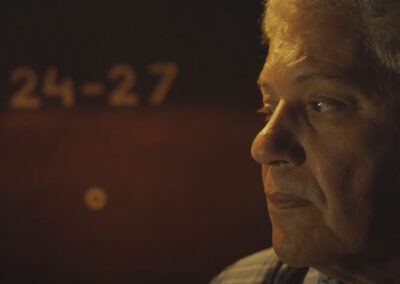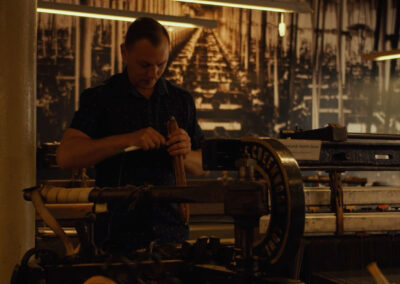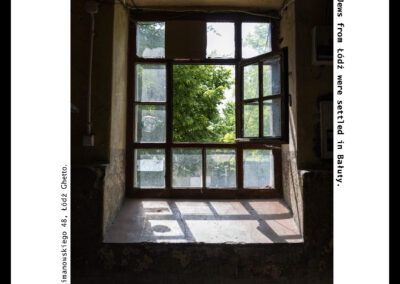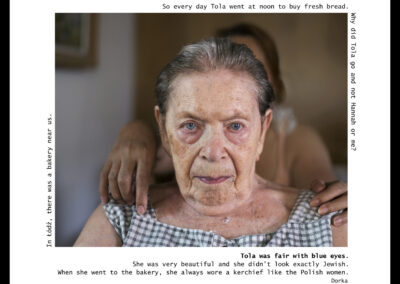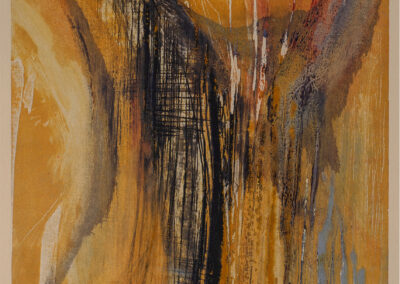On the seventy-fifth anniversary of their relatives’ deportation from the Lodz Ghetto to Auschwitz-Birkenau, a family of artists travels to Poland to uncover their roots. Through their respective mediums—photography, painting, and filmmaking, the three image-makers respond to the experiences of the first and second generation of Polish-Jewish and Israeli Holocaust survivors in their family. Employing narrative and visual storytelling, representation, and abstraction, still and mediated imagery, these American artists aspire to preserve their family’s multi-continental migration and wartime legacy across time and space. In today’s climate of rising xenophobia, the narratives of Holocaust survivors can serve as warnings about the perils of hatred unchecked.
In challenging periods, art can serve as an educational catalyst. Looming in the Shadows of Lodz underscores how artists interpret history through a personal lens, encouraging viewers to respond in part based on their lived experiences. Inviting meaningful dialogue and reflection, the artworks speak to those familiar and unfamiliar with this chapter in world history.
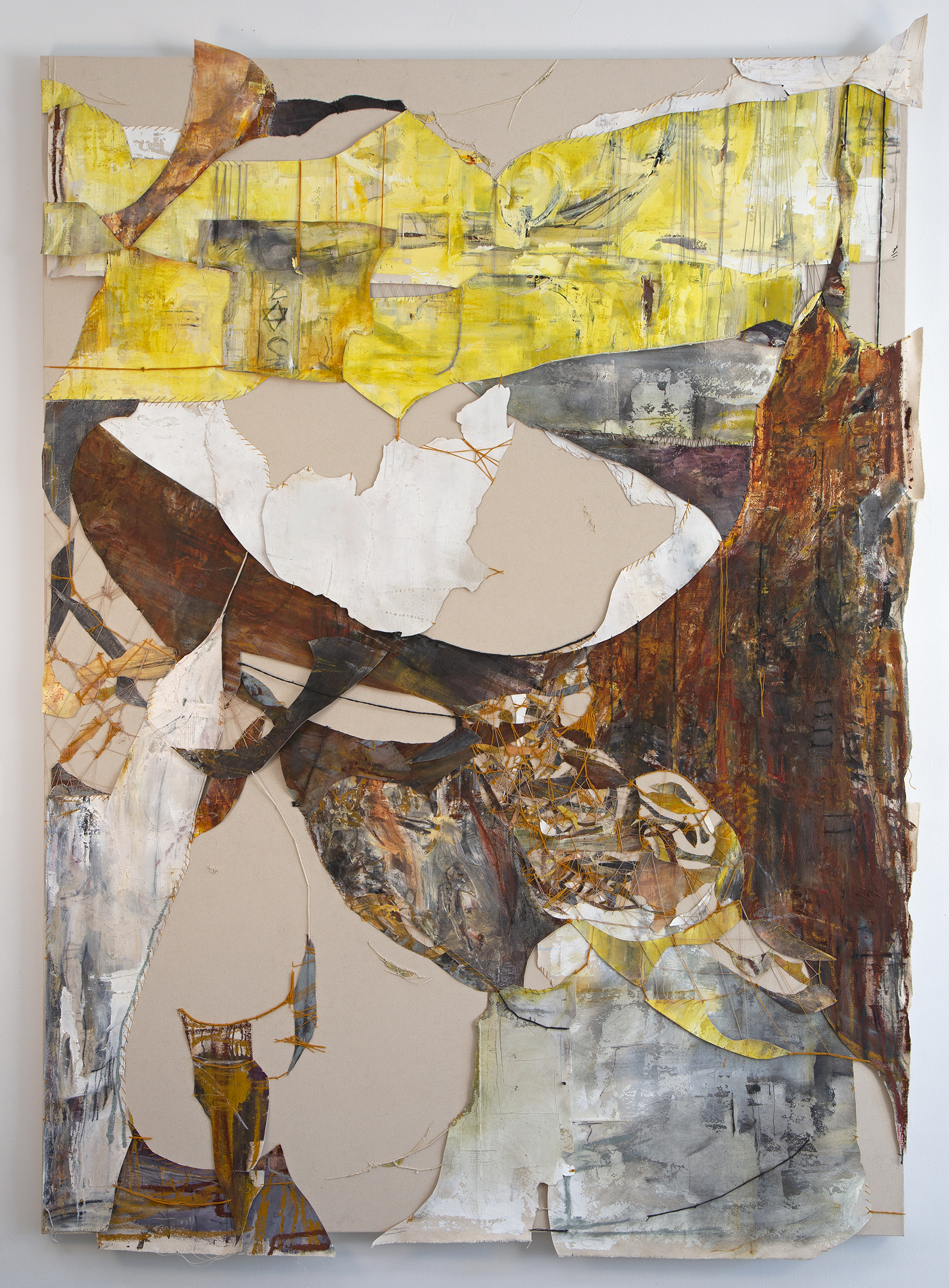
Tamar Segev, Limanowskiego 48, Lodz, Poland, June 2, 2019, Number 5
Artist statement
Looming in the Shadows of Lodz features the work of three Americans inspired by a roots’ trip to Poland. Employing narrative and visual storytelling through representation and abstraction, the artists present their family’s migration and wartime legacy in this multi-media exhibition. This multi-generational family project has been inspired, in part, by writings on post memory and visual culture. “Scholarly work on the Holocaust has looked to this moment when survivors and other contemporary witnesses are leaving our midst, with great trepidation,” writes Dr. Marianne Hirsch in The Generation of Postmemory: Writing and Visual Culture After the Holocaust. “How will the story survive without their acts of witness? The second generation has acted as a gatekeeper, but we now have to realize that we are ourselves handing the story on to the third and making it available for others to connect their own very different histories.”
Photographer Leslie Starobin captures familial habitats and sites of Nazi genocide as they appear in Poland today. She frames her pictures with stories she collected over decades from relatives who experienced these places first-hand.
Artist Tamar Segev repeatedly paints the entryway to her grandmother’s apartment in the Lodz ghetto. Echoing the sentiments of third-generation survivors, she says, “We return to the actual and approximate sites of our grandparents’ pasts in an endeavor to ‘capture memory’—before we lose the chance. Yet, regardless of the number of return visits, we still find ourselves lost in the ‘fragments of memories.’ For me, this return occurs in each new canvas.”
Filmmaker Ori Segev tracks his Israeli father retracing his parents’ past in Lodz. Everywhere he goes, Segev’s father takes pictures to share with his aunt in Jerusalem—the only first-generation survivor alive to caption his photographs.
Leslie Starobin, Tamar Segev, Ori Segev
About the artist
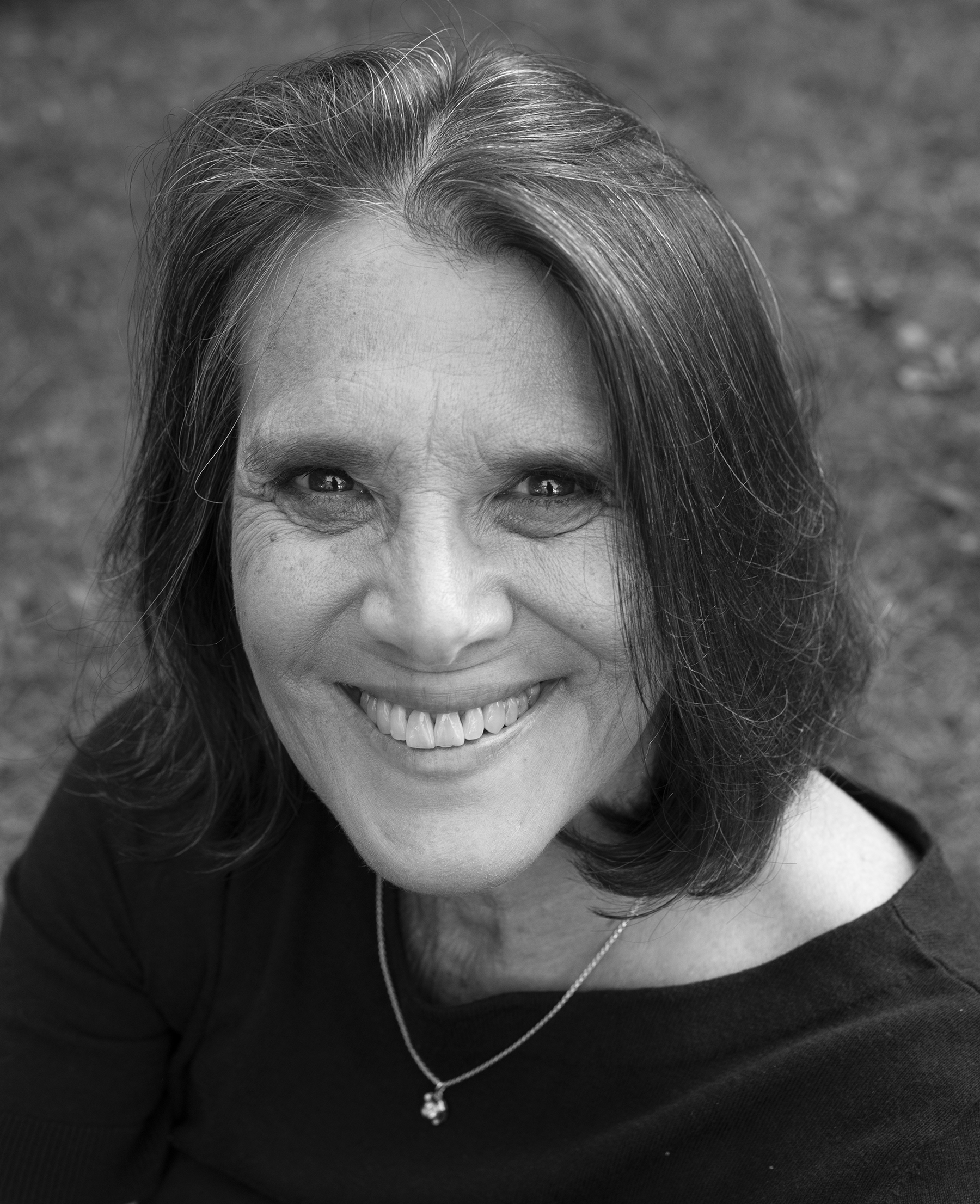
Leslie Starobin (Second Generation) is a Professor Emerita of Art at Framingham State University in Framingham, MA. Throughout her career, unraveling the threads of human memory has been central to her creative process. Her photographs, photo-narratives, and still-life montages are inspired by people and places steeped in family history, enriched by cultural traditions, and central to world history and the environment.
Starobin’s artwork is in the permanent collection of many American museums, including the Fogg Art Museum, Harvard University, Cambridge, MA; Jewish Museum, NY, NY; Library of Congress, Washington, D.C.; Museum of Fine Arts, Houston, TX; Museum of Modern Art, NY, NY; The Magnes Collection of Jewish Art and Life at University of California at Berkeley, CA; Nasher Museum of Art at Duke University, Durham, NC; Rose Art Museum at Brandeis University, Waltham, MA; Smith College Museum of Art, Northampton, MA; and the Worcester Art Museum, Worcester, MA.
Starobin’s photographs and photomontages have been exhibited at numerous museums, including at the Center for Jewish History in New York city. In 2015, she had a solo exhibit entitled Dear Dearest Mother at the Danforth Art Museum in Framingham, MA. In 2012-13, she had a solo exhibit entitled Inheritance: Stories of Memory and Discovery at the Holocaust Museum Houston, Houston, TX.
Starobin received support for Looming in the Shadows of Lodz from a Combined Jewish Philanthropies Arts and Culture Community Impact Grant (Boston chapter).
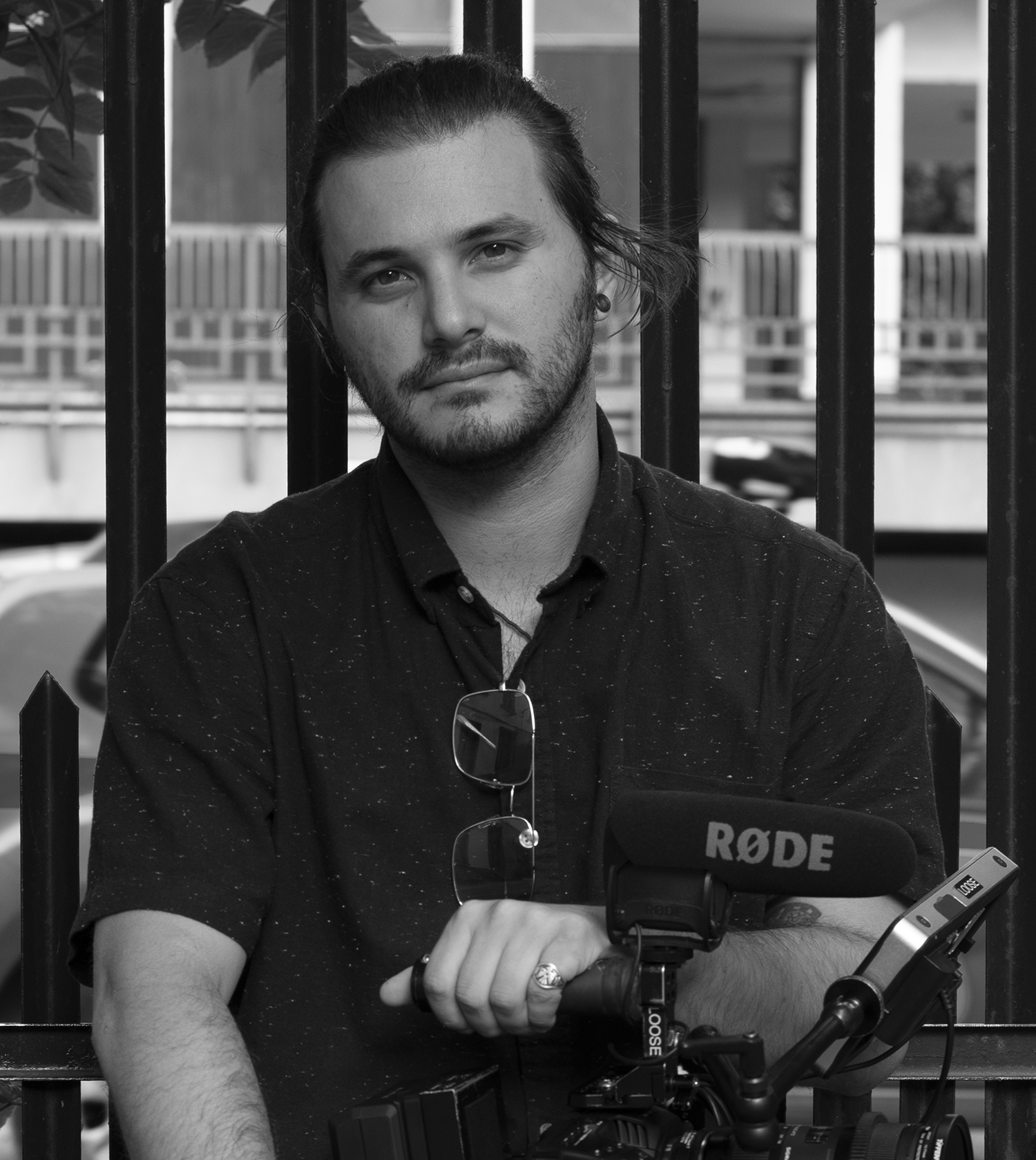
Ori Segev (Third Generation) is an award-winning director and cinematographer based in Columbus, OH, where he co-founded Loose Films, a boutique production company, in 2014. Recognized for his “assured debut” by the The New York Times, Segev’s first feature film, POSER, premiered at the 2021 Tribeca Film Festival and found theatrical distribution through Oscilloscope Laboratories. With Poser, Segev was also a 2020 Gotham Fiction Feature fellow. Co-directed with Segev’s long-time creative partner Noah Dixon, Poser screened at international film festivals in Germany, Poland South Korea, and England where the movie received an award for “Best Director” at the London Film Festival. Poser was also awarded the Grand Jury prize at the Florida Film Festival and the Nashville Film Festival.
Segev also served as the cinematographer and creative producer for Character, a documentary short that premiered at the 2020 Sundance Film Festival. Character was released in 2021 through The New Yorker and received the accolade of Vimeo Staff Pick.
Segev loves working with musicians. Recently, Loose Films collaborated with comedian and musician Kyle Gordon on the viral sensation, Planet of the Bass. In 2017, Segev directed and filmed Down & Dirty, an indie documentary that follows busking culture in New Orleans. Segev’s strong eye for visual storytelling began with his childhood passion for film photography, which he still pursues. In 2014, Segev received a B.A. in Cinema from Denison University in Granville, OH.
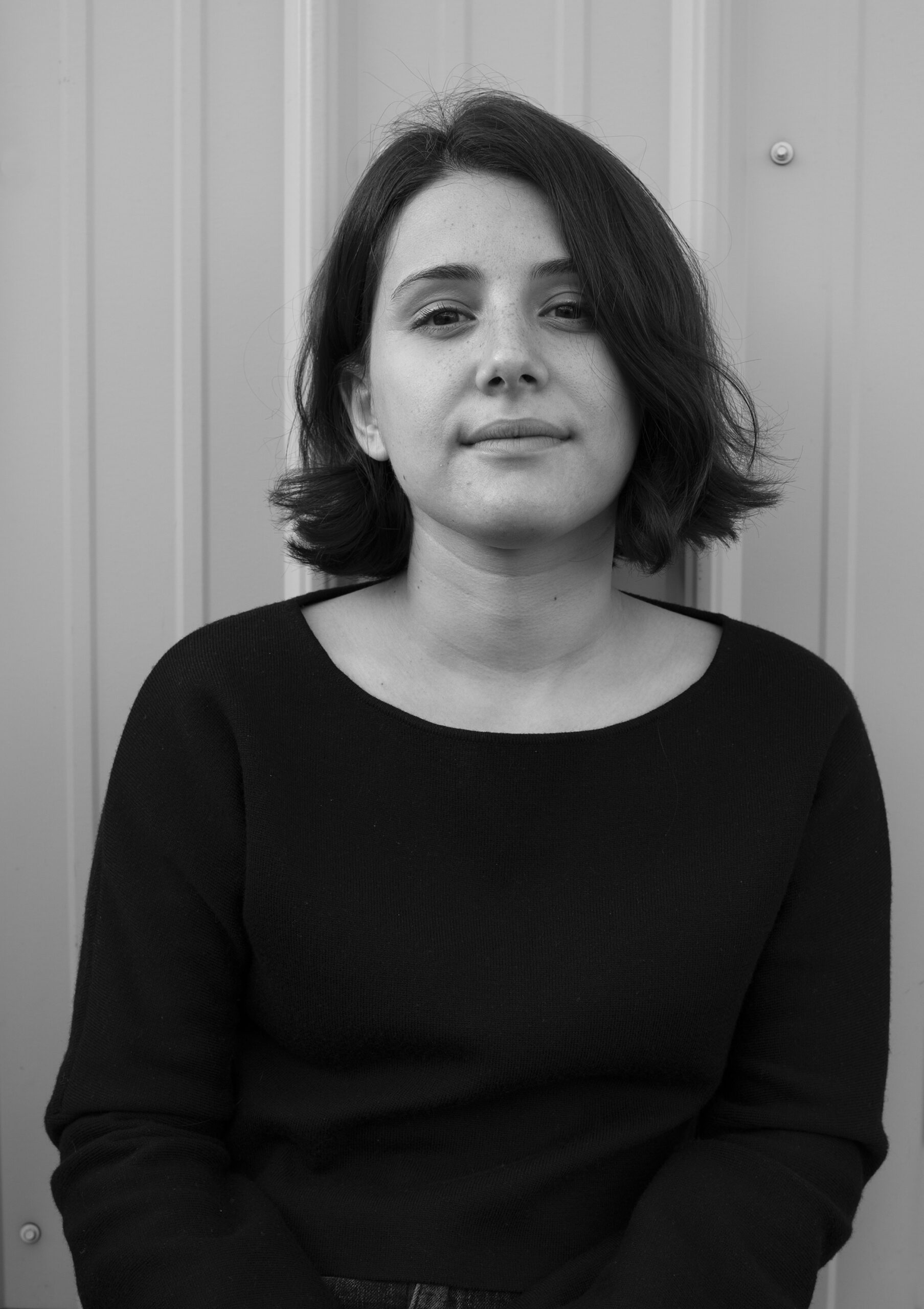
Tamar Segev (Third Generation) is a visual artist from Boston, MA, working in painting, printmaking, and drawing. She holds a BA in Studio Art from Carleton College and an MFA in Painting from the University of Illinois at Urbana-Champaign. She also received a Graduate Certificate in Holocaust, Genocide, and Memory Studies from Illinois. Segev has exhibited her work nationally and internationally, including in Brooklyn, NY, Cambridge, MA, and Ottawa, Canada. Since completing her MFA in 2021, she has shown her work in four solo exhibitions, including one at the University of Wisconsin, Madison. Her artwork is in the public collection of I Hotel and Conference Center in Champaign, IL.
From 2021-22, Segev taught Drawing I and II at Millikin University in Decatur, IL and Experimental Drawing at Rhode Island School of Design in Providence, RI. Beginning fall semester 2022, she is a Visiting Lecturer at Framingham State University in Framingham, MA.
Segev is a recipient of the 2022 Naomi Anolic Early Career Jewish Artist Award. In 2023, she attended a three-month residency at GlogauAIR in Berlin. Her current series explores the connections between familial memory, historical narratives, and Jewish history as they are embedded in specific sites and surfaces of architecture in Poland and Germany.
This exhibition is supported, in part, by a generous grant from the Combined Jewish Philanthropies Arts & Culture Community Impact Grant Fund.
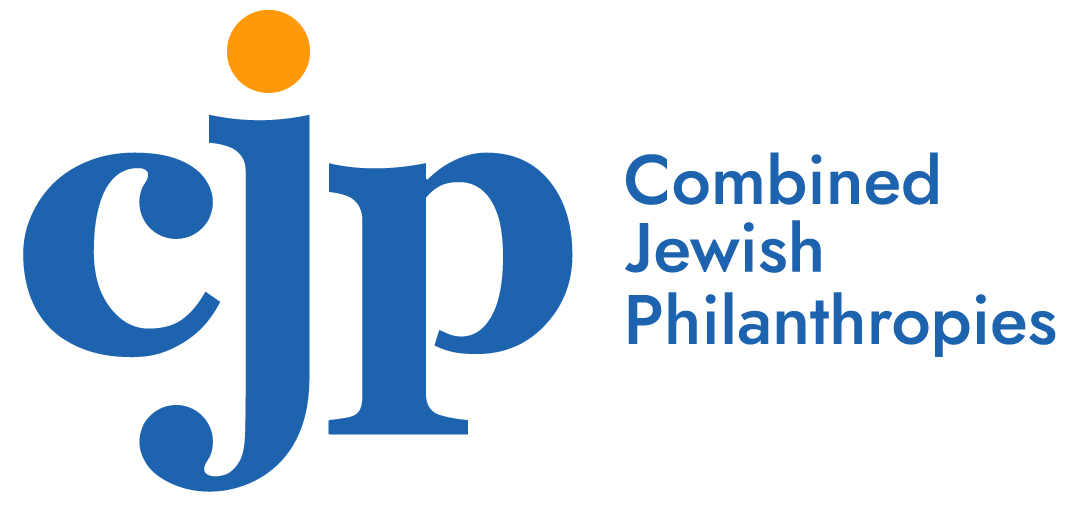
ARTtalk/Artist’s Spotlight
Special programming to be coordinated with the 22nd Annual Martin and Doris Rosen Symposium and the Center for Judaic, Holocaust, and Peace Studies, July 12 – 17, 2023
Additional resources
- www.starobinartworks.com
- https://www.instagram.com/lesliestarobin/
- https://www.jewishboston.com/read/local-artist-leslie-starobin-explores-jewish-exile-and-immigration/
- www.tamarsegevart.com
- https://www.instagram.com/tssegev/
- https://www.orisegev.com/
- www.loosefilms.com
- https://www.instagram.com/shootinloose/?hl=en

